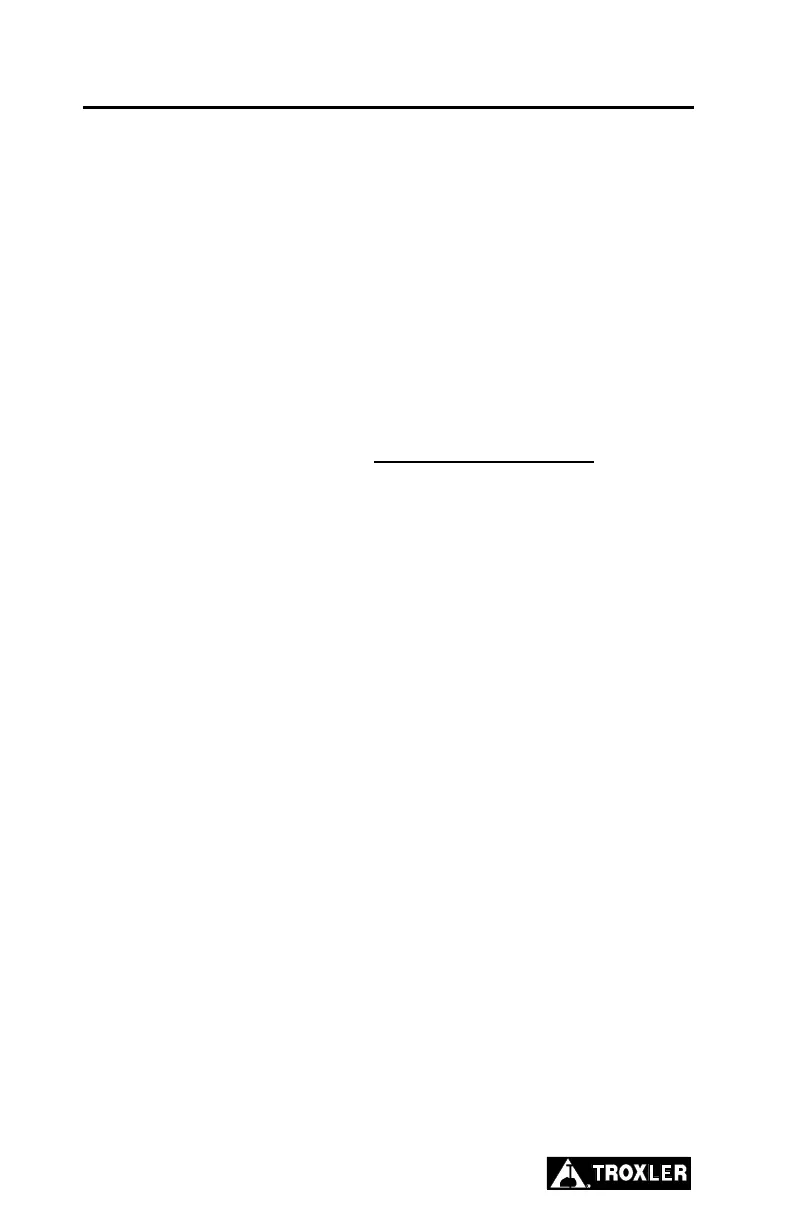OFFSETS
The Model 3411-B gauge is factory-calibrated for soils, asphalt, and
concrete with an approximate density range of 1100 to 2700 kg/m
3
(70 to 170 pcf). With an offset, the operator can adjust the gauge
readings to correlate to traditional laboratory methods, such as core
samples. The Model 3411-B ACU provides three offsets: density,
moisture, and trench.
NOTE
When an offset has been enabled, all future readings will
automatically be adjusted with the offset factor
regardless of the test site. It is very important that the
operator disable the offset function prior to taking
readings on materials that
do not require an offset.
Offsets are disabled if the gauge is turned off for more
than 10 seconds.
Density offsets are common when the material being measured is
outside the range of 70 to 170 pcf (1121 to 2723 kg/m
3
) or if the
material composition varies from average soil/asphalt on which the
factory calibration is based.
Moisture offsets are required for accurate measurements if the
material to be measured contains elements that can cause the gauge
to yield erroneous results. A negative offset is required if the
material to be measured is high in hydrogenous components such as
cement, gypsum, coal, or lime. A positive offset is required if the
material is high in neutron-absorbing material such as boron or
cadmium.
The gauge requires an offset if measurements are to be taken inside
a trench or close to vertical structures. Vertical structures can scatter
neutrons and gamma photons back to the gauge, increasing the
possibility of moisture or density errors due to high counts.
3–2

